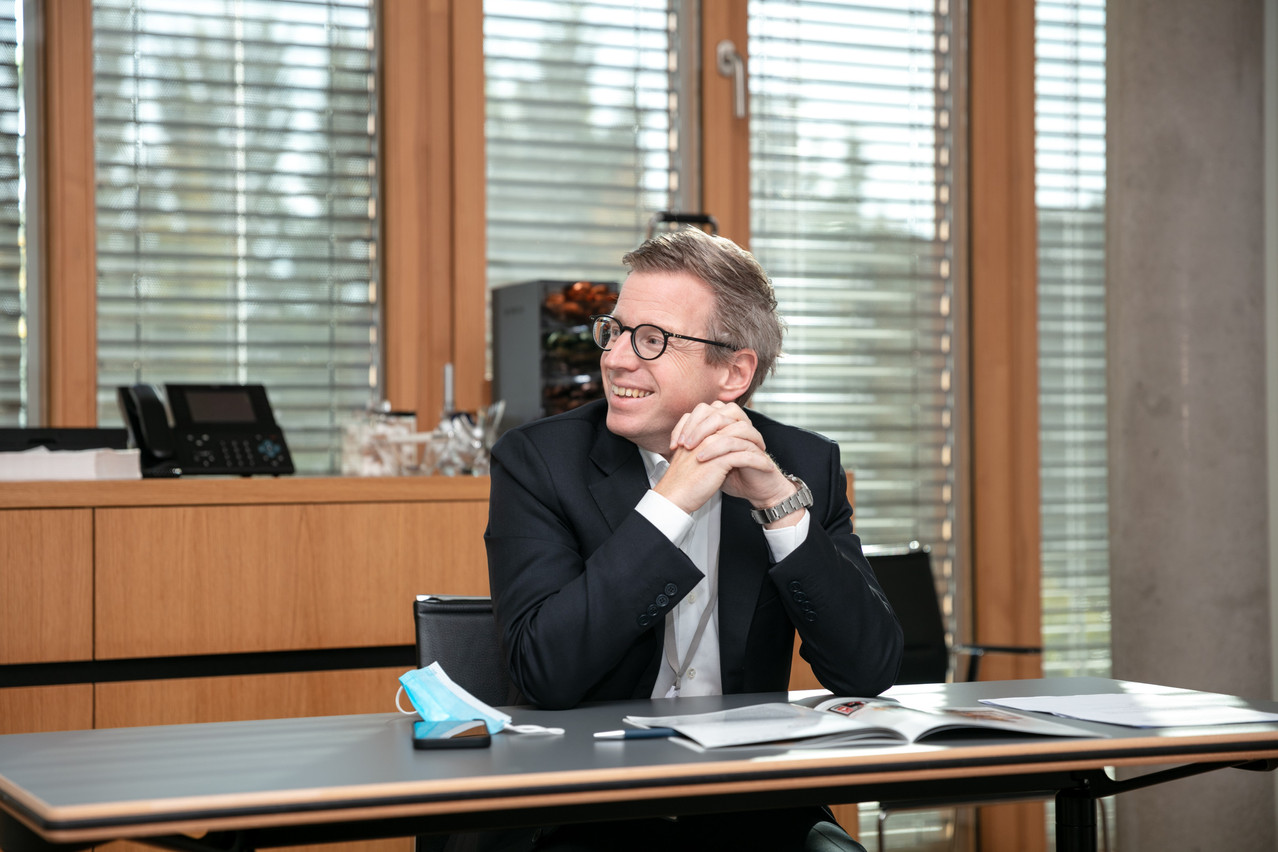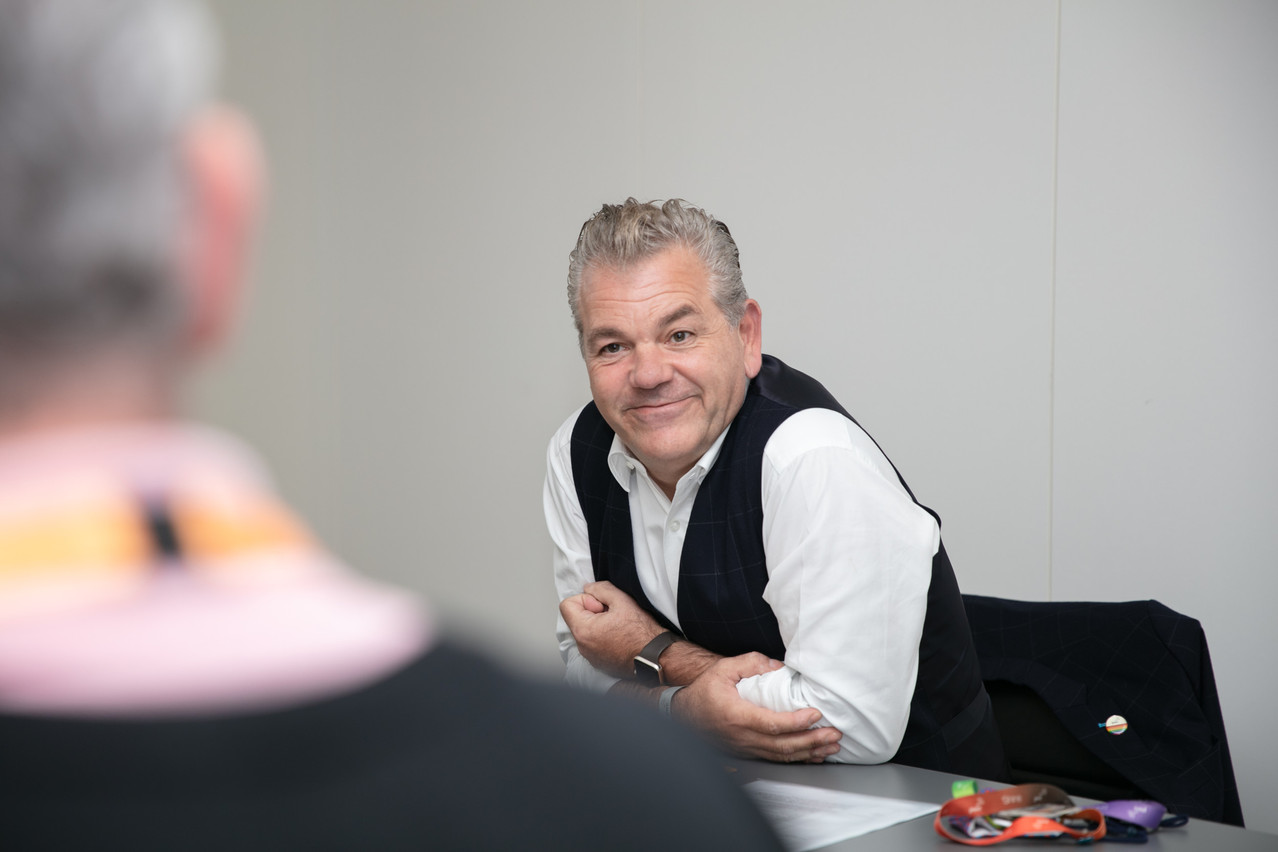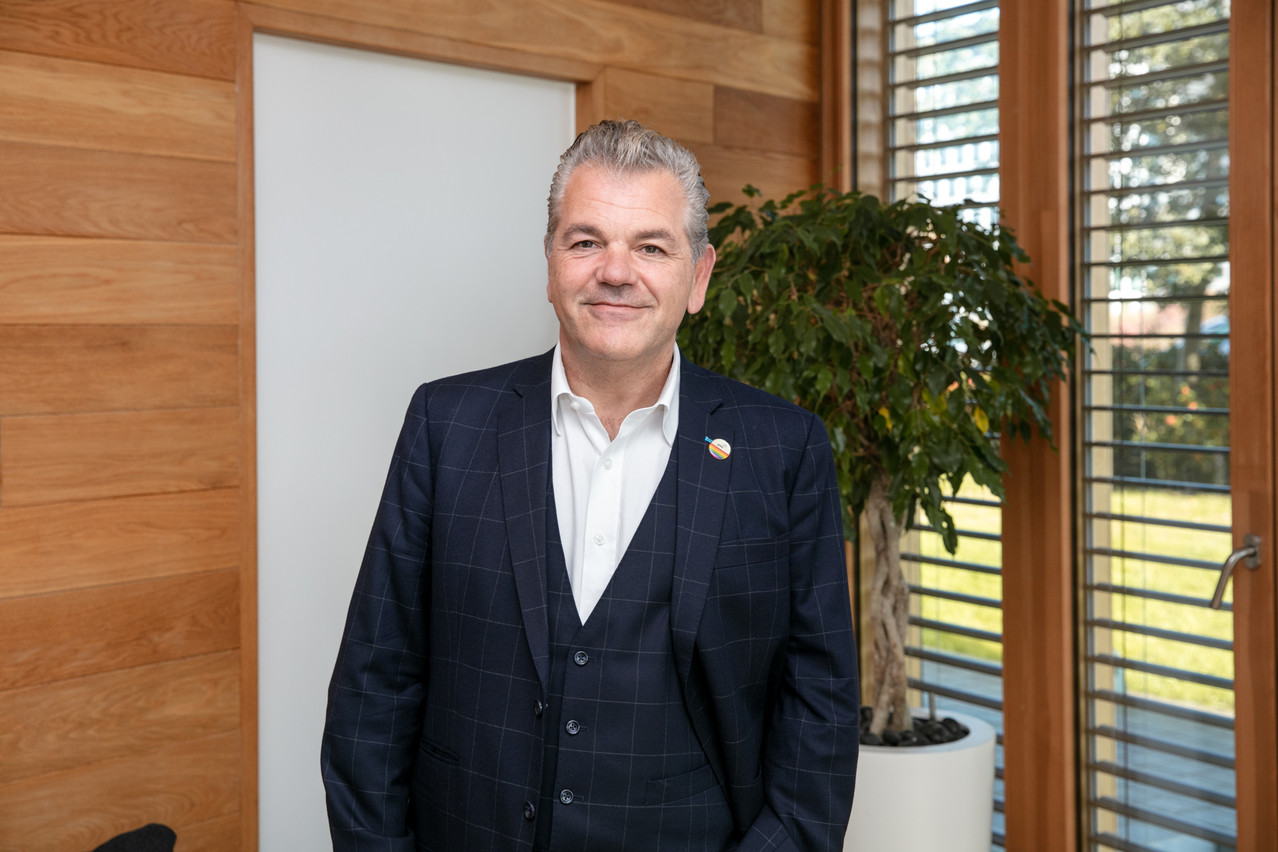PwC Luxembourg notched up top line growth of in the financial year to 30 June 2021, despite the pandemic. While that was good news for the business, the surge has exacerbated existing pressure on the firm’s workforce.
“We did not necessarily expect the year to be that strong when we started it,” François Mousel, clients and markets leader at PwC Luxembourg, said at an exclusive briefing with Delano and Paperjam. This “led to some of the pressures we had in terms of people, because with the recruitment we had launched, we still recruited strongly, but not necessarily to that growth.” That meant staff had “to manage quite a high, I would say, workload towards the end of the year”.

François Mousel, clients and markets leader at PwC Luxembourg, is seen during an interview with Delano and Paperjam, 18 October 2021. Photo credit: Romain Gamba
Addressing this pressure is “a key point in terms of our focus for the coming year,” John Parkhouse, CEO of PwC Luxembourg, told Delano and Paperjam during the briefing, which was held before the firm released it annual results. “We’ve seen our people turnover increase, but at the moment, not dramatically,” Parkhouse said. It was “about 18%” overall and “for us a healthy turnover is more in the 14%-15% range.” In its annual people survey, which 81% of Luxembourg staff completed, “one of the big concerns... is the level of work that they have.” Likewise, the question often comes up during recruitment interviews. “When you look at the exit interviews, the top reason that is [given for leaving the firm] is around workload... and their inability to see themselves carrying on like this for many years to come.”
Pledge to staff
Parkhouse stated that “we are committed to changing this dynamic. And we’re committed to changing this dynamic in terms of not only the technology that we can bring to bear and the journey we’ve been on over the last few years there, but in terms of sheer concrete capacity, and really materially increasing the concrete capacity that we have. And it’s a challenge, right? We’re not there yet. Actually sourcing the people is really, really hard.... we’ve shifted from 77 nationalities here to 82 nationalities here, as we are going further and further afield. But it’s something that we will continue to focus on. It’s a promise we’ve made to our people. And it’s a promise we’re determined to deliver.”
He reiterated that “we’re investing in more people, not just to meet the growth. We’re investing in more people to basically start to shift [to a] healthy balance that we want to have across the workforce. To start to change somewhat the historic dynamic across professional services firms, [that have had] at points in time, very, very heavy workloads for a sustained period.”
The company employed 2,839 people in the grand duchy as of 30 June. In its 2021 annual review, released on 25 October, Parkhouse wrote that “we have increased our targeted recruitment for the coming year by nearly 70% with a target of approximately 910 new joiners at all levels”. Following the interview, a company representative said its headcount “is expected to be over 2,900 as of January 2022.”

John Parkhouse, CEO of PwC Luxembourg, is seen during an interview with Delano and Paperjam, 18 October 2021. Photo credit: Romain Gamba
Retention is the second piece of the puzzle. Key to that is “a huge focus on equipping our people from a talent perspective, from a skills perspective, not only digitally, which is what we’ve been successfully working on over the last couple of years, but also from a commercial and social skill set [perspective],” Parkhouse stated during the interview.
One underlying current is the growth in Luxembourg’s alternative funds sector, which has picked up notably in the past few years just as other parts of the business have slowed or shrunk. The firm has been “basically upskilling our asset and wealth management people into the alternative sector. You also see it on the tax side, where you see the, quote unquote, ‘attractiveness of Luxembourg for multinationals’ declining and therefore our business there declining, but being more than offset by the growth in the alternatives business, so reskilling our people in those areas has been a critical part of how we’ve pivoted in terms of this rapid growth that is really fueling our business.”
Development as competitive advantage
“I wouldn’t say it’s easy” to reskill and upskill staff to serve the alternative funds sector, “but I would say it’s a challenge we’ve been pretty successful at doing.” Alternative funds are “still by far the fastest growth in our business. We anticipate that for the immediate next couple of years. And we will continue to need to [focus on] hiring different profiles, but also that conversion of people.”
The emphasis on skills is an essential component of “a competitive package,” Parkhouse reckoned. “Part of that competitive package is distinctive professional development opportunities.” His message to employees was “that the longer you stay with PwC, the more valuable you will be as a business professional, whether that’s within PwC, or whether that’s outside PwC.”
